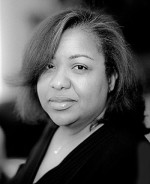Column Name
Title
Exactly 30 years ago, I left Juilliard as a violinist with both bachelor’s and master’s of music degrees, but without the often presumed career goals of becoming a soloist or an orchestral musician. Like many talented classical musicians, I certainly had been groomed from an early age to practice, perform, study, and focus on music to the exclusion of almost everything else. However, unlike other young musicians who are exceptionally gifted and guided by teachers and parents who see a glorious future ahead for them, I could not envision a life of solo performances with orchestras, countless hours of practice, or the unyielding pursuit of perfection.
Body
I enjoyed my time at Juilliard, where I met wonderful students from all disciplines and received unparalleled training and coaching from some of the best musicians in the world, but I had no idea how to pursue a career. At that time, there was no Office of Career Services to provide paid performance opportunities, dual degree programs to explore, or Lunch and Learn speakers to share information with students or graduates of Juilliard; and, with the exception of a few “stars” who received constant direction and support, most of us were left to find our own way. There was a very small job board located near the Juilliard switchboard on the second floor and a short list of teaching jobs in another office. Aside from that, each person was responsible for creating his or her own strategy for success.
My first job after graduation was not what I had imagined as the next step after Juilliard—a very tough 11-week bus-and-truck tour (traveling almost daily to different towns) playing The Merry Widow, arranged for string quartet and piano, with an opera company. It wasn’t the most glamorous job, but it paid weekly, I worked with wonderful musicians (some of whom have become lifelong friends), and I was very happy that I could support myself and begin repaying my student loan. After returning from that tour, I began my journey of many years as a successful freelance musician in New York. I had not charted my course in advance but I was fortunate to be able to enjoy a very interesting, varied, and fulfilling career—until I began to feel like playing just wasn’t enough.
I don’t recall a defining moment that pointed me in the new direction but I do remember that I was very excited about making a change. I applied to law school and pushed myself through four years of part-time, year-round evening classes while juggling orchestra rehearsals and concerts, Broadway shows, and performances with the New York City Ballet Orchestra. After graduation, I passed two bar exams and began work as an attorney and artist representative.
Why am I sharing this story? Well, I never would have imagined it when I was enrolled here, but I am now working at Juilliard and am privileged to view the School from the “other” side. Even though many years have passed since I was a student, I think that much of the life of a Juilliard student remains the same. I interact with students daily, speak to them about their dreams for the future and proudly witness their efforts to create a fulfilling life and career that will sustain them after they graduate. I see and hear their excitement and anticipation when they share their visions of limitless possibilities. I love their unbounded joy as they describe what they believe their future will hold; but I am concerned for them, too, because I want to be assured that they have entertained realistic thoughts of a life beyond the insulation of the School, and the assumption of a seamless professional transition. The students now have many opportunities to obtain ongoing, excellent career advice and support from the School but I would offer some additional words of encouragement: remain open to everything that you experience and continue to push yourself to mine the talents and passion within. You can never know exactly where your life will take you—even with the best-laid plans.
I recently attended the inaugural event of Beyond the Stage, a new Juilliard alumni group for professionals in non-performing careers. We gathered to meet, network, and share stories about our lives after Juilliard. The professions represented at our small gathering were attorney, photographer, president of a realty company, director of administration at a university music school, music therapist, dancer and dance company road manager, author, arts administrator, and artist management/marketing professional. We discovered shared reasons that led us to pursue alternative careers: a quest for financial stability (including repayment of student loans), family responsibilities, performance-related injuries, release from the rigors of daily practicing, and a strong desire to combine our artistic backgrounds with talents and interests outside of the arts. The event was an affirmation and acknowledgement that we are still connected to Juilliard and that our training here had added great value to our lives. We can also attest that the skills that Juilliard students develop during their years of preparation—dedication, concentration, tenacity, and collaboration—will serve them well as performers, educators, visionaries, and citizens.
Juilliard remains a society of inspired and inspiring artists. Whether a student is graduating from this esteemed institution with dreams that embody the performing experience or embarking on a path less traveled, I trust that all have been given essential and extraordinary tools for a rewarding professional life.
For information about the alumni group Beyond the Stage, contact Melissa Odens at modens@juilliard.edu.





